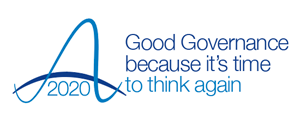Reimagining the future of work
15 June 2020

COVID-19 has had – and will continue to have – a significant impact on work and employment.
Across Europe, a wave of bankruptcies is predicted, with 90% of small to medium-sized firms saying they have been affected by the pandemic and 30% reporting that sales have been impacted by 80% or more.
In the UK, experts are predicting that the economy will shrink by between 11.5% and 14% this year, while the Institute of Directors has reported that investment intentions among its members for the next 12 months is down to a record low of -43%.
McKinsey has reported that lockdown has put around 7.6 million jobs at risk across the UK, by which it means permanent layoffs, temporary furloughs, and reductions in hours and pay. And nearly half of those jobs are in occupations earning less than £10 per hour.
All of this will have a substantial bearing on consumer behaviour and on the way that many businesses operate. Many firms have already had to restructure, looking at how they approach their work and also at how costs can be removed from their business model.
Challenges – but also opportunities
In many ways, the pandemic has merely accelerated workplace trends that were already in train, such as increasing digitisation and remote working. As well as the numerous challenges thrown up by the pandemic, it also presents employers with an opportunity to reimagine the future of work, unfettered by many of the old restrictions.
In health, one of the most visible markers has been how virtual consultations have been embraced within primary care. This has had the positive impact of releasing valuable clinical time as well as introducing more flexibility into the role, including home working, and has proven particularly popular amongst younger GPs many of whom aspire to a portfolio career. Indeed, the shift has been so positively received that it’s now impossible to envisage things returning to the way they were before COVID-19.
Many people have also reported that lockdown restrictions have improved their work-life balance, allowing them to spend more time with family members, or devote themselves to new, or long-forgotten skills. The impact of this should not be underestimated.
Societal inequalities
But we know that the pandemic has also exacerbated societal inequalities. For example, research by the Institute for Fiscal Studies suggests that lower-income earners are less able to work remotely and are more likely to lose their jobs as a consequence of lockdown restrictions. They are also more precariously positioned to ride out any economic uncertainty, of course.
As companies look to reduce costs through automation, it is also those in lower-income positions who are most susceptible to being upended. Evidence suggests that automation is driving growth in more knowledge-intensive sectors and we’ve learned from previous economic downturns that where roles are removed or automated to reduce costs, they tend not to be reintroduced, leaving those displaced in an employment limbo. It is also true that when jobs or professions leave regions, they often don’t return. McKinsey has reported that in Europe job growth has been concentrated in certain regions meaning that many must now move (challenging in the current climate) or risk being left behind.
Gender and ethnic imbalance
Unfortunately, the consequences of this economic disruption are likely to be more severe for BAME people, who are also at between a 10 per cent and 50 per cent higher risk of death from the virus when compared to white British people.
Others have pointed out that gender inequalities may have been magnified during the lockdown, with women’s unemployment rising more than men’s during this period, and a reported resurgence of historic gender roles within the domestic sphere.
The lockdown experience of many has been one of great uncertainty – and this is likely to continue long into the future given the record levels of national debt and uncertainty over the likelihood of a second wave.
Balancing needs
Boards will need to carefully balance the needs of their businesses with those of their staff during this difficult period. There are huge workforce challenges on the horizon but boards have a duty of care to their staff which must not be neglected.
In particular boards will want to be mindful that:
- they are role models within the organisation and should behave as they would wish to be treated
- they are open and approachable, communicating frequently in a clear and transparent manner
- they are, as much as is appropriate, mindful of staff members’ personal circumstances and, in particular, their health and wellbeing during COVID-19
- they are taking steps to ensure that workspaces (including the home) are fit for purpose and as ‘COVID-secure’ as they can be
- they have fully embraced partnership working as a means of providing support and opportunities for their staff
GGI has been thinking carefully about these issues and considering how it can help boards to discharge their duties during this time of crisis and beyond. We will shortly be publishing a board assurance prompt that will explore these issues in greater detail, and which will support effective board decision-making.
If this bulletin prompts any comments or questions, please contact us by calling on 07732 681120 or emailing advice@good-governance.org.uk.
Chris Smith
Consultant
